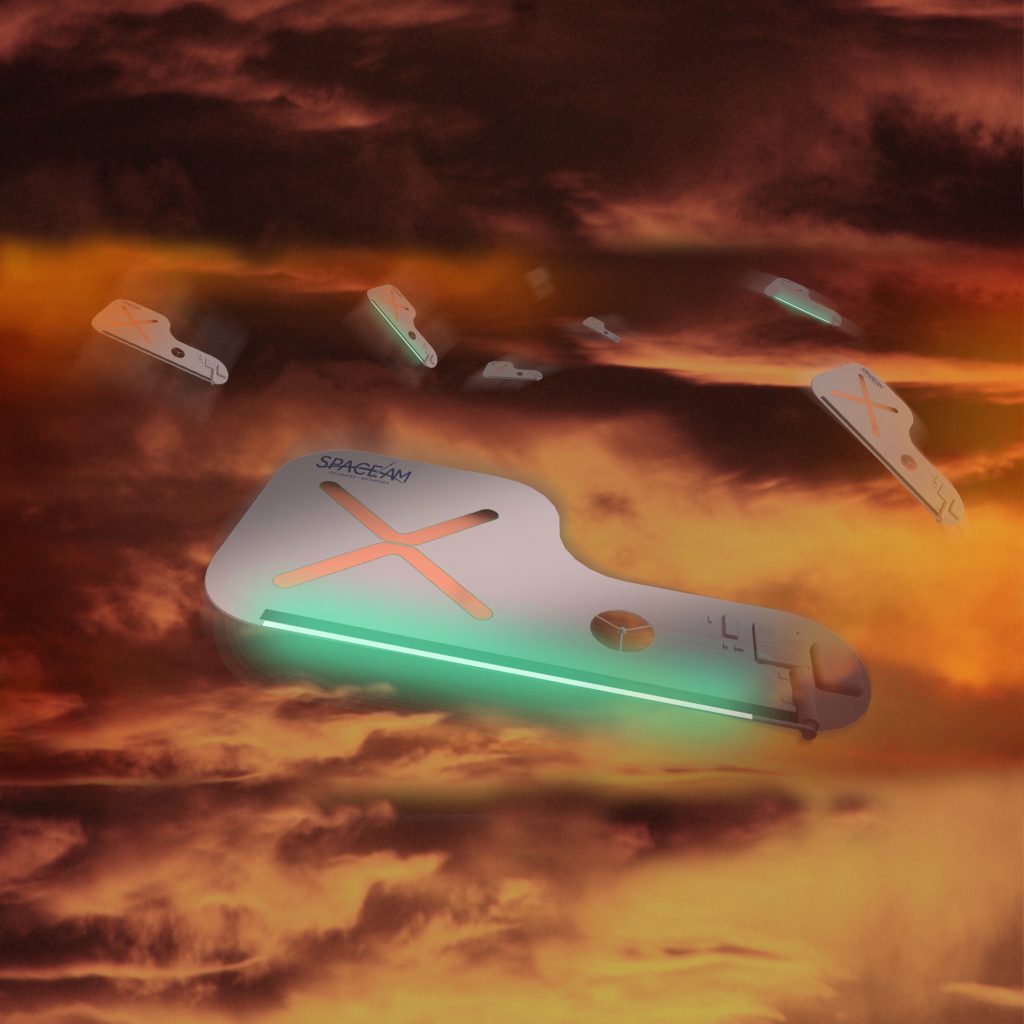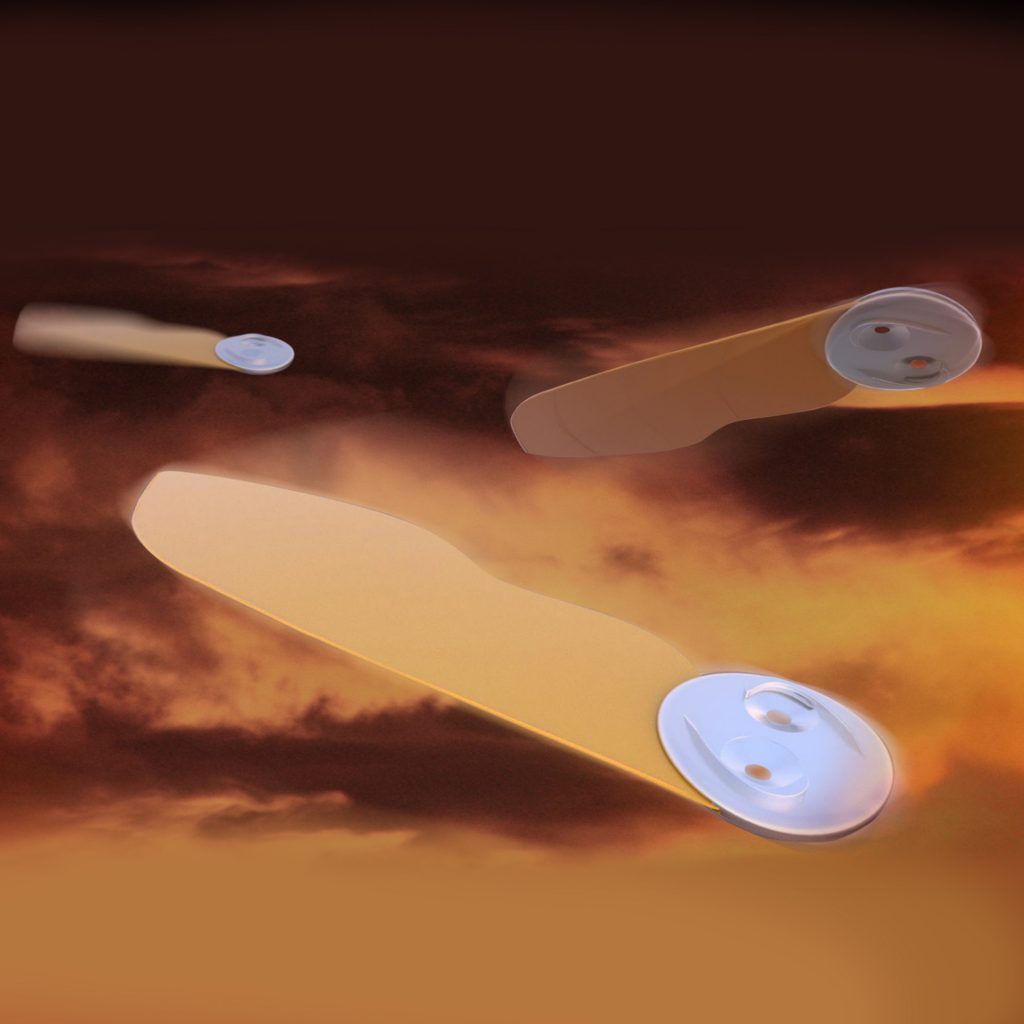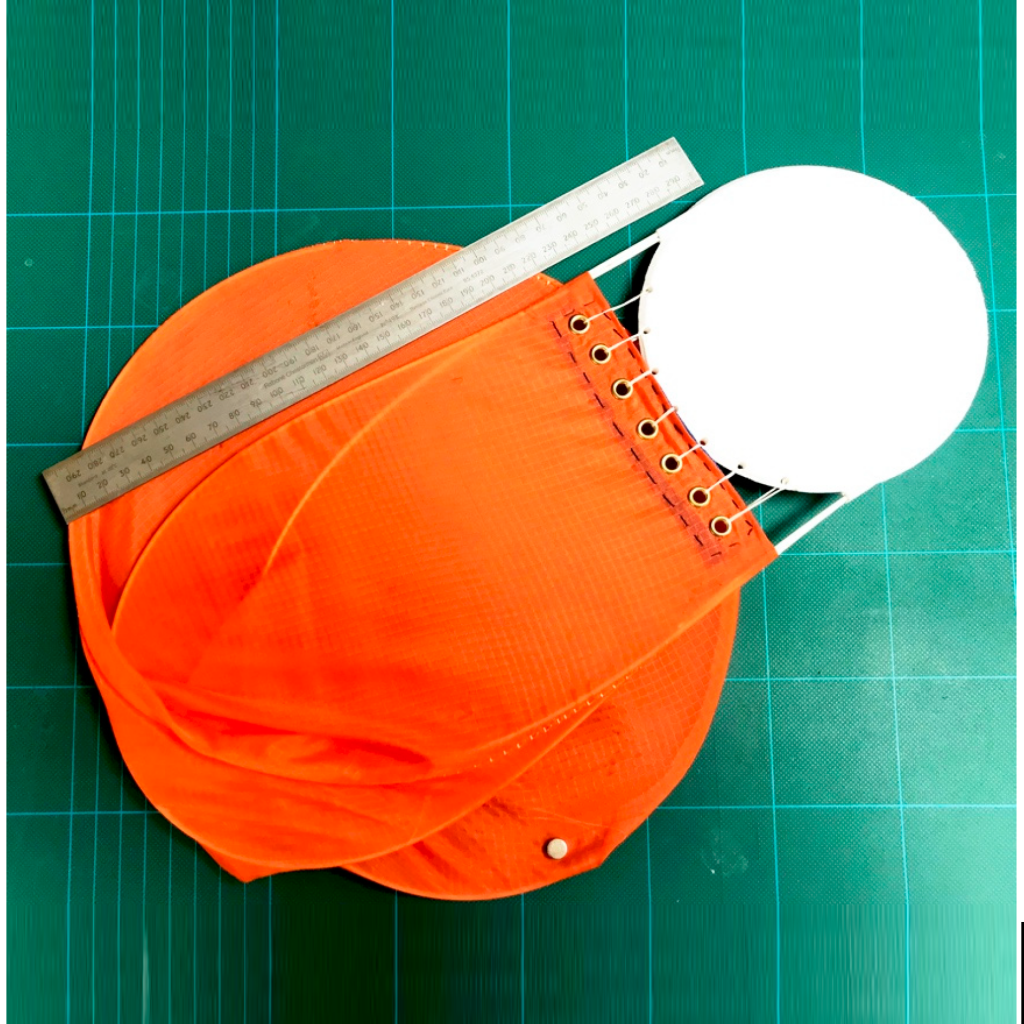Testing of SpaceAM’s LEVL probe version 1.
Dropped from 80 m by Drone.
Wind: Gusts at 5 mph
May 2022: UK
Dropped from 80 m by Drone.
Wind: Gusts at 5 mph
May 2022: UK
Generation 2 LEVL Probe design.
A swarm of LEVL probes to measure winds and droplet acidity in the Venusian cloud layer.
Designed to Measure:

Simulation of leading edge vortex to create lift.
As supplied by Kate Seeger, University of Exeter.
Designed to answer the question…
Can a small, lightweight, free-falling sample probe be slowed enough in the Venusian atmosphere to run a 10 min microelectromechanical systems (MEMS) ion gas micro spectrometer, without adding a propulsion system or explosives and parachutes to the probe mass?
The answer is yes, it can.
Paper Published in July 2022
Leading-Edge Vortex Lift (LEVL) Sample Probe for Venusian Atmosphere
https://www.mdpi.com/2226-4310/9/9/471

We have developed and validated a predictive model of probe flight characteristics that allows us to predict the wing size to carry payload weights from just 5 g up to 1 kg, slowing the descent of the falling object by 50% and increasing flight and sampling time.
Practical applications include:
Probe Design Patent : GB2599127A

Research has now moved to phase 3 at Exeter University in the UK under Prof. Nathan Mayne and the faculties of astro physics, earth sciences and mathematics.
We would like to thank all the students that have taken part in this programme of work so far.
Work has now started on the dimensions for a working prototype of the LEVL probe in conjunction with the MIT led Morning Star Missions to Venus under Prof. Sara Seager.
We would like to thank Sara and her team for having us along on this amazing journey and we are hopeful our probe may get a space on a medium size mission to Venus to help in the search for microbial life in the planet’s clouds.